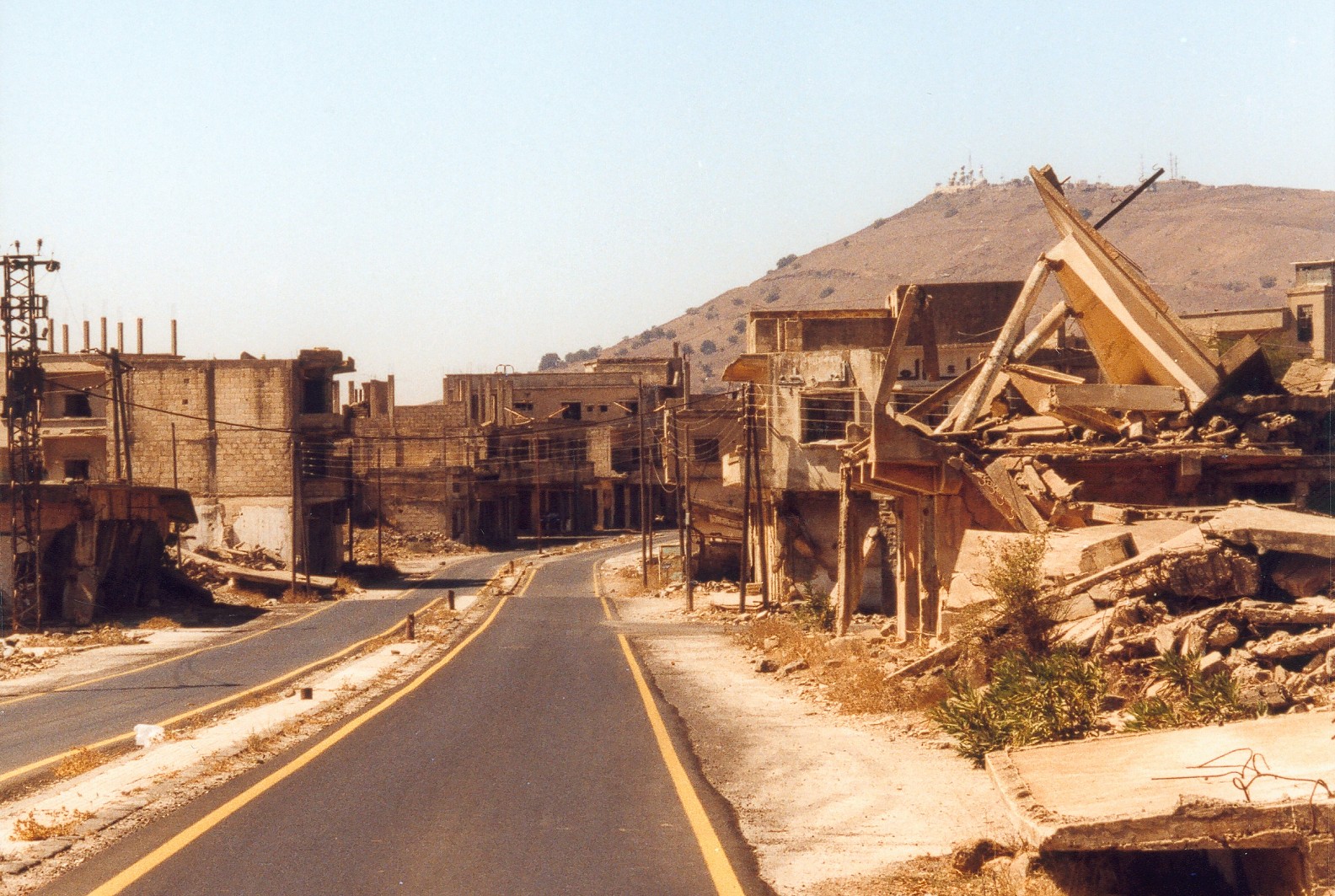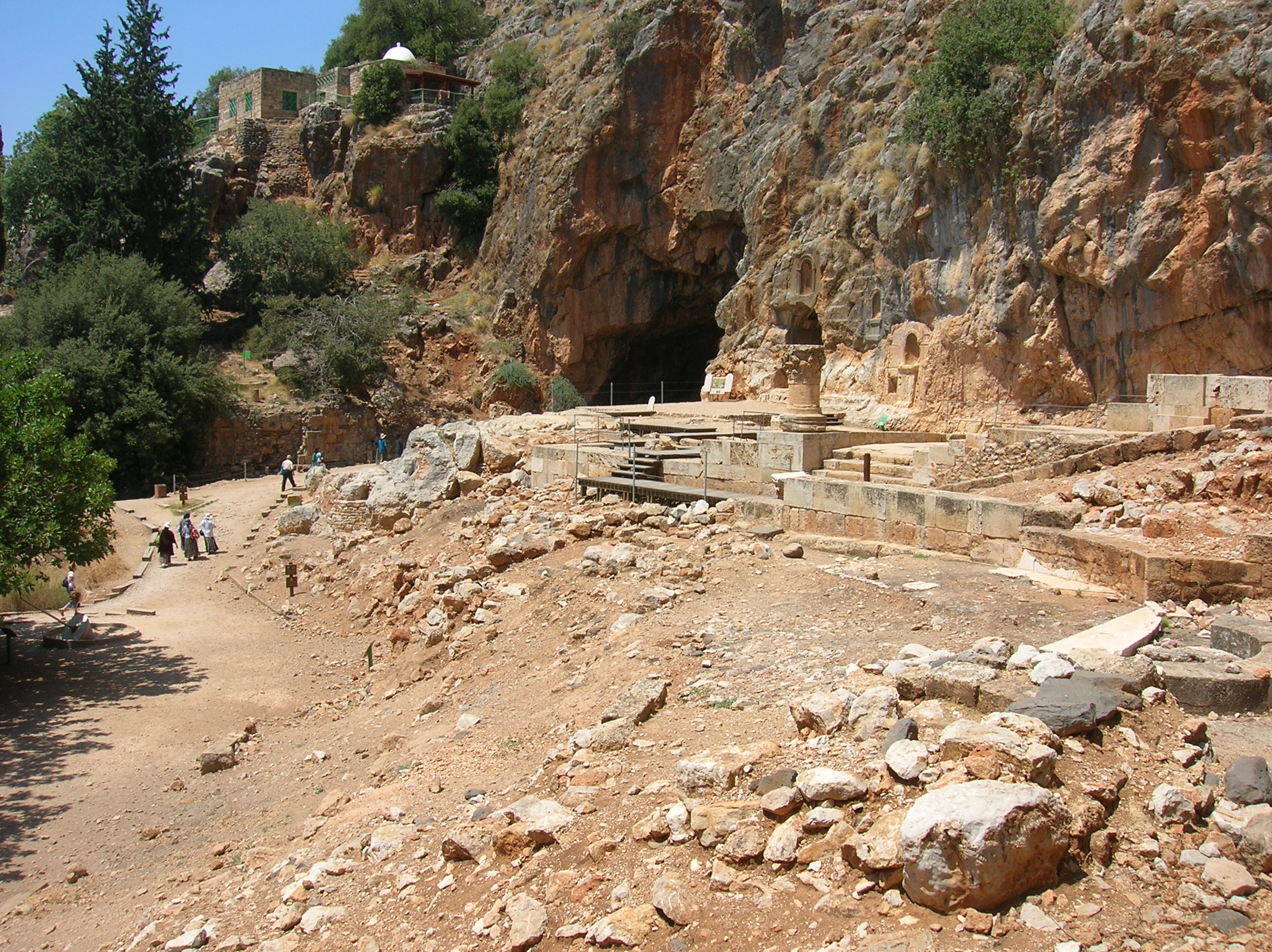|
United Nations Security Council Resolution 1328
United Nations Security Council resolution 1328, adopted unanimously on 27 November 2000, after considering a report by the Secretary-General Kofi Annan regarding the United Nations Disengagement Observer Force (UNDOF) and reaffirming Resolution 1308 (2000), the Council extended its mandate for a further six months until 31 May 2001. The resolution called upon the parties concerned to immediately implement Resolution 338 (1973) and requested that the Secretary-General submit a report on the situation at the end of that period. The Secretary-General's report pursuant to the previous resolution on UNDOF said that the situation between Israel and Syria had remained calm with no serious incidents though the situation in the Middle East as a whole remained dangerous until a settlement could be reached. Restrictions on the freedom of movement Freedom of movement, mobility rights, or the right to travel is a human rights concept encompassing the right of individuals to travel ... [...More Info...] [...Related Items...] OR: [Wikipedia] [Google] [Baidu] |
Kofi Annan
Kofi Atta Annan (; 8 April 193818 August 2018) was a Ghanaian diplomat who served as the seventh secretary-general of the United Nations from 1997 to 2006. Annan and the UN were the co-recipients of the 2001 Nobel Peace Prize. He was the founder and chairman of the Kofi Annan Foundation, as well as chairman of The Elders, an international organisation founded by Nelson Mandela. Annan studied economics at Macalester College, international relations at the Graduate Institute Geneva, and management at MIT. Annan joined the UN in 1962, working for the World Health Organization's Geneva office. He went on to work in several capacities at the UN Headquarters including serving as the Under-Secretary-General for peacekeeping between March 1992 and December 1996. He was appointed secretary-general on 13 December 1996 by the Security Council, and later confirmed by the General Assembly, making him the first office holder to be elected from the UN staff itself. He was re-elected for a s ... [...More Info...] [...Related Items...] OR: [Wikipedia] [Google] [Baidu] |
United Nations Disengagement Observer Force
The United Nations Disengagement Observer Force (UNDOF) is a United Nations peacekeeping mission tasked with maintaining the ceasefire between Israel and Syria in the aftermath of the 1973 Yom Kippur War. The mission was established by United Nations Security Council Resolution 350 on 31 May 1974, to implement Resolution 338 (1973) which called for an immediate ceasefire and implementation of United Nations Security Council Resolution 242. The resolution was passed on the same day the Agreement on Disengagement and was signed by Israeli and Syrian forces on the Golan Heights, finally establishing a ceasefire to end the war. Since 1974, UNDOF has since performed its functions with the full cooperation of both sides, and its mandate has been renewed every six months. The United Nations Truce Supervision Organization (UNTSO) and UNDOF operate in a buffer zone between the two sides and continue to supervise the ceasefire. Before the Syrian Civil War, the situation in the Israel ... [...More Info...] [...Related Items...] OR: [Wikipedia] [Google] [Baidu] |
United Nations Security Council Resolution 1308
United Nations Security Council resolution 1308, adopted unanimously on 17 July 2000, was the first resolution to address the impact of HIV/AIDS worldwide. The United Nations Security Council, Security Council asked countries to consider voluntary HIV/AIDS testing and counselling for troops deployed in peacekeeping operations. Speaking after the unanimous adoption of the United States-sponsored resolution, the American ambassador Richard Holbrooke thanked Security Council members for the "unprecedented resolution on a health issue–the first in the history of the Security Council." Resolution Observations The security council was concerned about the HIV/AIDS pandemic worldwide, and especially the severity of HIV/AIDS in Africa, the crisis in Africa. The United Nations General Assembly, UN General Assembly and the United Nations Economic and Social Council, UN Economic and Social Council had an important role and there was a need for a co-ordinated effort to address the diseases. ... [...More Info...] [...Related Items...] OR: [Wikipedia] [Google] [Baidu] |
United Nations Security Council Resolution 338
The three-line United Nations Security Council Resolution 338, adopted on October 22, 1973, called for a ceasefire in the Yom Kippur War in accordance with a joint proposal by the United States and the Soviet Union. The resolution stipulated a cease fire to take effect within 12 hours of the adoption of the resolution. The "appropriate auspices" was interpreted to mean American or Soviet rather than UN auspices. This third clause helped to establish the framework for the Geneva Conference (1973) held in December 1973. The resolution was passed at the 1747th UNSC meeting by 14 votes to none, with one member, the People's Republic of China, not participating in the vote. The fighting continued despite the terms called for by the resolution, brought Resolution 339 which resulted in a cease fire. The resolution states: Binding or non-binding issue The alleged importance of resolution 338 in the Arab–Israeli conflict supposedly stems from the word "decides" in clause 3 which ... [...More Info...] [...Related Items...] OR: [Wikipedia] [Google] [Baidu] |
Israel
Israel (; he, יִשְׂרָאֵל, ; ar, إِسْرَائِيل, ), officially the State of Israel ( he, מְדִינַת יִשְׂרָאֵל, label=none, translit=Medīnat Yīsrāʾēl; ), is a country in Western Asia. It is situated on the southeastern shore of the Mediterranean Sea and the northern shore of the Red Sea, and shares borders with Lebanon to the north, Syria to the northeast, Jordan to the east, and Egypt to the southwest. Israel also is bordered by the Palestinian territories of the West Bank and the Gaza Strip to the east and west, respectively. Tel Aviv is the economic and technological center of the country, while its seat of government is in its proclaimed capital of Jerusalem, although Israeli sovereignty over East Jerusalem is unrecognized internationally. The land held by present-day Israel witnessed some of the earliest human occupations outside Africa and was among the earliest known sites of agriculture. It was inhabited by the Canaanites ... [...More Info...] [...Related Items...] OR: [Wikipedia] [Google] [Baidu] |
Syria
Syria ( ar, سُورِيَا or سُورِيَة, translit=Sūriyā), officially the Syrian Arab Republic ( ar, الجمهورية العربية السورية, al-Jumhūrīyah al-ʻArabīyah as-Sūrīyah), is a Western Asian country located in the Eastern Mediterranean and the Levant. It is a unitary republic that consists of 14 governorates (subdivisions), and is bordered by the Mediterranean Sea to the west, Turkey to the north, Iraq to the east and southeast, Jordan to the south, and Israel and Lebanon to the southwest. Cyprus lies to the west across the Mediterranean Sea. A country of fertile plains, high mountains, and deserts, Syria is home to diverse ethnic and religious groups, including the majority Syrian Arabs, Kurds, Turkmens, Assyrians, Armenians, Circassians, Albanians, and Greeks. Religious groups include Muslims, Christians, Alawites, Druze, and Yazidis. The capital and largest city of Syria is Damascus. Arabs are the largest ethnic group, and Mu ... [...More Info...] [...Related Items...] OR: [Wikipedia] [Google] [Baidu] |
Freedom Of Movement
Freedom of movement, mobility rights, or the right to travel is a human rights concept encompassing the right of individuals to travel from place to place within the territory of a country,Jérémiee Gilbert, ''Nomadic Peoples and Human Rights'' (2014), p. 73: "Freedom of movement within a country encompasses both the right to travel freely within the territory of the State and the right to relocate oneself and to choose one's place of residence". and to leave the country and return to it. The right includes not only visiting places, but changing the place where the individual resides or works.Kees Groenendijk, Elspeth Guild, and Sergio Carrera, ''Illiberal Liberal States: Immigration, Citizenship and Integration in the EU'' (2013), p. 206: " eedom of movement did not only amount to the right to travel freely, to take up residence and to work, but also involved the enjoyment of a legal status characterised by security of residence, the right to family reunification and the right ... [...More Info...] [...Related Items...] OR: [Wikipedia] [Google] [Baidu] |
Arab–Israeli Conflict
The Arab–Israeli conflict is an ongoing intercommunal phenomenon involving political tension, military conflicts, and other disputes between Arab countries and Israel, which escalated during the 20th century, but had mostly faded out by the early 21st century. The roots of the Arab–Israeli conflict have been attributed to the support by Arab League member countries for the Palestinians, a fellow League member, in the ongoing Israeli–Palestinian conflict; this in turn has been attributed to the simultaneous rise of Zionism and Arab nationalism towards the end of the 19th century, though the two national movements had not clashed until the 1920s. Part of the Palestine–Israel conflict arose from the conflicting claims by these movements to the land that formed the British Mandatory Palestine, which was regarded by the Jewish people as their ancestral homeland, while at the same time it was regarded by the Pan-Arab movement as historically and currently belonging to the ... [...More Info...] [...Related Items...] OR: [Wikipedia] [Google] [Baidu] |
Golan Heights
The Golan Heights ( ar, هَضْبَةُ الْجَوْلَانِ, Haḍbatu l-Jawlān or ; he, רמת הגולן, ), or simply the Golan, is a region in the Levant spanning about . The region defined as the Golan Heights differs between disciplines: as a geological and biogeographical region, the term refers to a basaltic plateau bordered by the Yarmouk River in the south, the Sea of Galilee and Hula Valley in the west, the Anti-Lebanon with Mount Hermon in the north and Wadi Raqqad in the east. As a geopolitical region, it refers to the border region captured from Syria by Israel during the Six-Day War of 1967; the territory has been occupied by the latter since then and was subject to a de facto Israeli annexation in 1981. This region includes the western two-thirds of the geological Golan Heights and the Israeli-occupied part of Mount Hermon. The earliest evidence of human habitation on the Golan dates to the Upper Paleolithic period. According to the Bible, an Am ... [...More Info...] [...Related Items...] OR: [Wikipedia] [Google] [Baidu] |
Israel–Syria Relations
Israel–Syria relations refer to the bilateral ties between the State of Israel and the Syrian Arab Republic. The two countries have been locked in a perpetual war since the establishment of Israel in 1948, with their most significant and direct armed engagements being in the First Arab–Israeli War in 1948–1949, the Third Arab–Israeli War in 1967, and the Fourth Arab–Israeli War in 1973. Additionally, Israeli and Syrian forces also saw relatively extensive combat against each other during the Lebanese Civil War, the 1982 Lebanon War, as well as the War of Attrition. Both states have at times signed and held armistice agreements, although all efforts to achieve complete peace have been without success. Syria has never recognized Israel as a legitimate state and does not accept Israeli passports as legally valid for entry into Syrian territory; Israel likewise regards Syria as a hostile state and generally prohibits its citizens from travelling there, with some except ... [...More Info...] [...Related Items...] OR: [Wikipedia] [Google] [Baidu] |
List Of United Nations Security Council Resolutions 1301 To 1400
This is a list of United Nations Security Council Resolutions 1301 to 1400 adopted between 31 May 2000 and 28 March 2002. See also * Lists of United Nations Security Council resolutions * List of United Nations Security Council Resolutions 1201 to 1300 * List of United Nations Security Council Resolutions 1401 to 1500 This is a list of United Nations Security Council Resolutions 1401 to 1500 adopted between 28 March 2002 and 14 August 2003. See also * Lists of United Nations Security Council resolutions * List of United Nations Security Council Resoluti ... {{United Nations *1301 ... [...More Info...] [...Related Items...] OR: [Wikipedia] [Google] [Baidu] |




